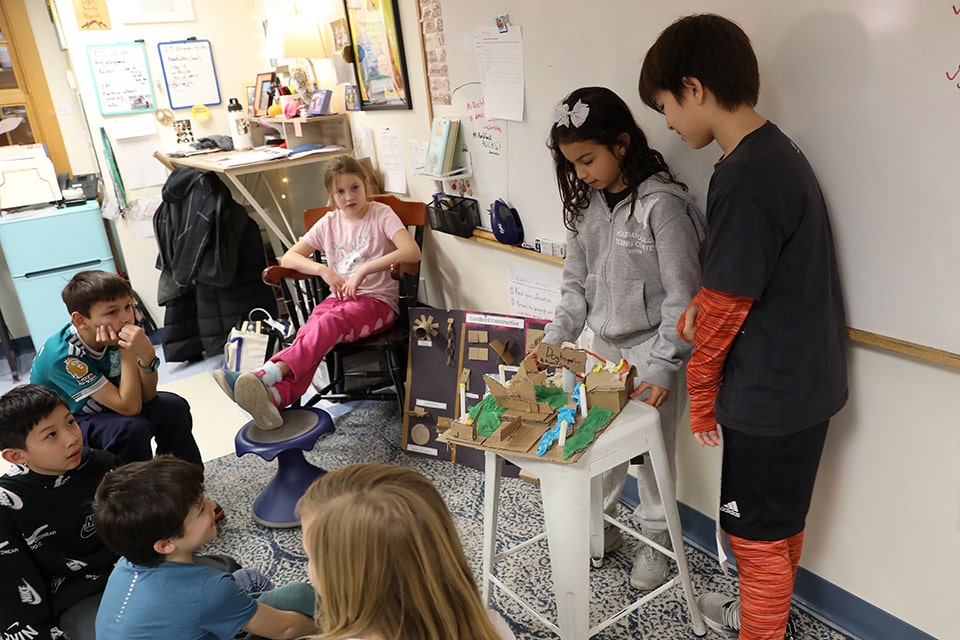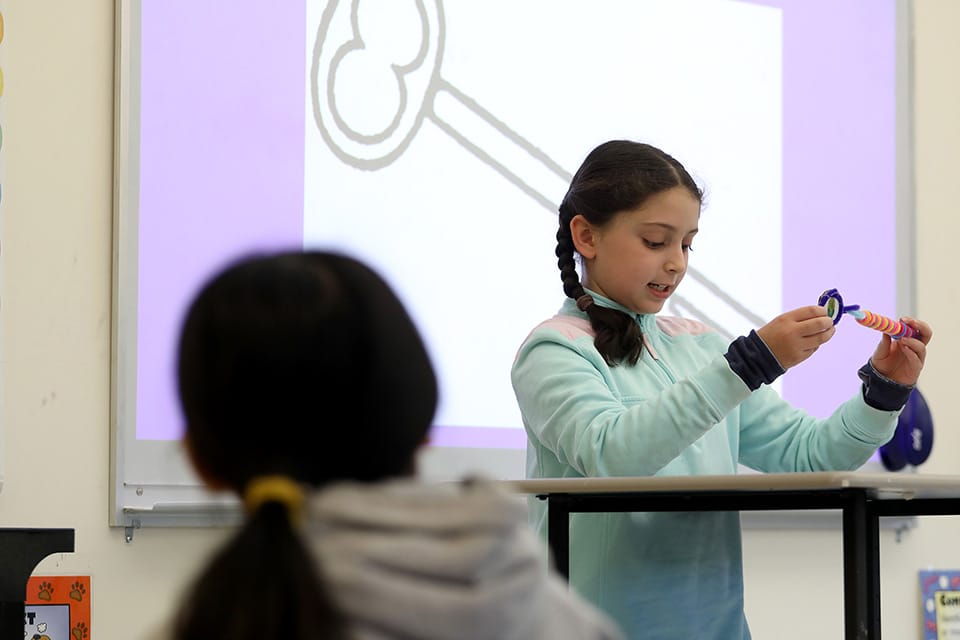Athletics: Finding Their Way At Orienteering
This week our Outdoor Adventures athletics teams got to try their hand at orienteering. Orienteering involves a combination of map reading and cross-country running, relying upon speed as well as spatial awareness, ingenuity, and willingness to take the route less traveled. Navigation Games, a local non-profit, was on hand with coaches, maps, and equipment, to teach us the finer points of this fast-growing sport and lead us in drills and races. Our athletes proved up to the challenge, and no one got lost (for very long).
– John O’Neill, director of athletics
First Grade Gobbles Up Math Lessons
First grade math is in full swing! This week, we have been reviewing concepts like comparing numbers, sequencing numbers, and counting forwards and backward. Our math sessions always begin with a whole-group lesson and activity, followed by extension work in centers. A favorite center this week was monster squeeze, a game that first graders were able to play with partners using their individual materials. Partner A would think of a number between 1-50. Partner B would try to guess it and Partner A would say whether the number was more or less than the one guessed. Partner A’s monsters would “eat” the numbers leading up to the guess since it couldn’t be any of those numbers. For example, if the number was more than 17, one of the monsters would “eat” the numbers up to 17. If it was less than 42, the monster on the other side would “eat” the numbers from 50 down to 42. First graders are very excited to bring their monster squeeze sets home to play with their families.
– Katie Alexander and Cicely Gibson, grade 1 teachers
Sixth Grade Explores the Distributive Property
This week, students in sixth grade math dug into the roots of what makes up a number. How can we represent a number like 48 as a product (answer to a multiplication problem) and as a sum (answer to an addition problem)? Can we show 48 as the result of both a product and a sum? To answer these questions, students were introduced to the distributive property: an important and fundamental step in breaking down complex multiplication problems, learning algebra, and understanding number theory. In our science classes, we explore the fundamental components of matter (the elements), and in math, we investigate the most basic components of numbers: factors and multiples. Next week, we will be investigating ratios, rates, and proportions!
– Matt Segil, middle school math teacher and adviser
Third Grade French Grows a Lesson in the Garden
During the quarantine in spring, gardening and growing vegetables at home became a trend all around the world. This trend was the starting point for our third grade French intensive. We studied French infographics to learn about places where people like to garden in France and discovered that they are similar to where people garden around here. From windowsills to communal gardens, people in France and the United States took care of their herbs, flowers, and vegetables in many of the same places. After studying pictures of the Belmont Day garden, the third graders drew their own dream gardens. To describe them in French, they learned vocabulary about plants, tools, insects, and other garden friends. You can check their finished projects during the sharing assembly next Friday, October 30. To wrap up our outstanding work, we ended the intensive by designing a healthy sandwich and writing a song for it!
– Nathalie Pellenq, lower school and grade 6 French teacher
Seventh Grade English Class Examines Power of Propaganda
While reading George Orwell’s Animal Farm, students in seventh grade English have been critically examining the role of power as it relates to relationships, conflicts, and values. As the pigs on the farm continue to consolidate power through disinformation and lies, we analyzed how propaganda influences the attitudes, opinions, and behaviors of people by suppressing critical thinking. Students examined competing political advertisements for the 2020 Presidential Election and closely reviewed the propaganda of Squealer from Animal Farm. Students then crafted their own Animal Farm specific propaganda and wrote monologues defending their propaganda directed at the animals on the farm.
– Jonathan Drummey, middle school English teacher and grade 7 adviser



